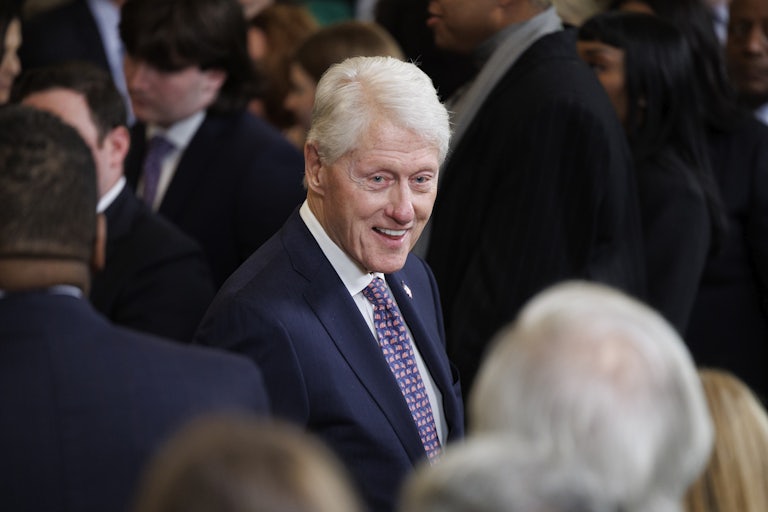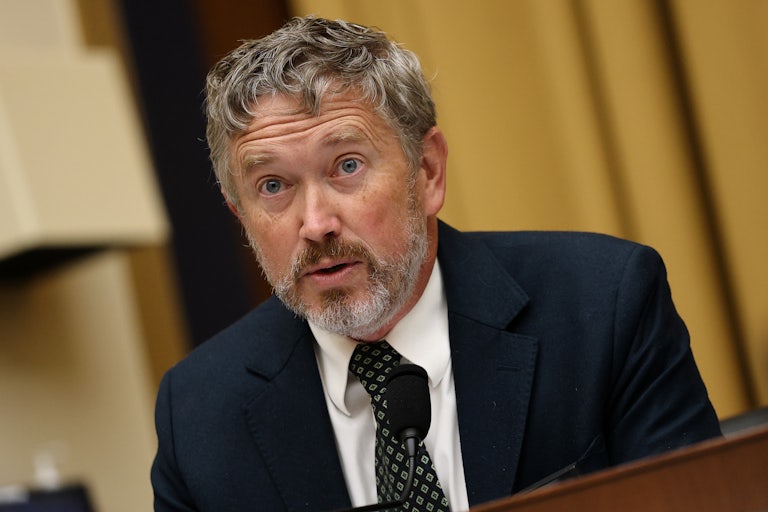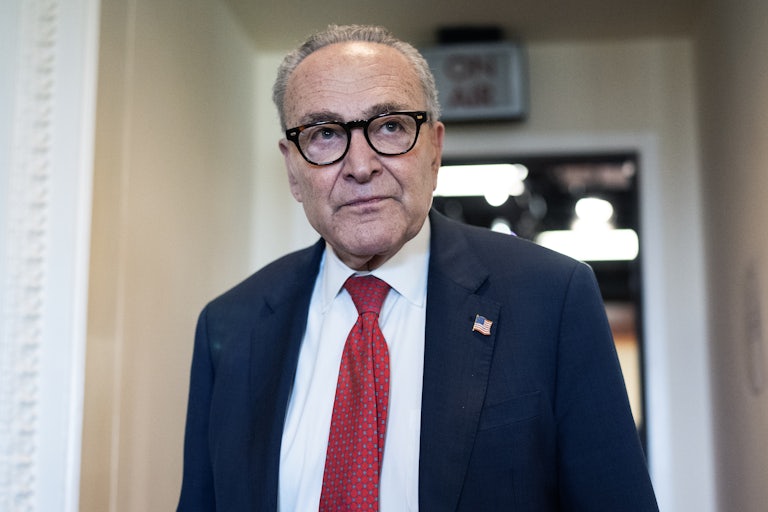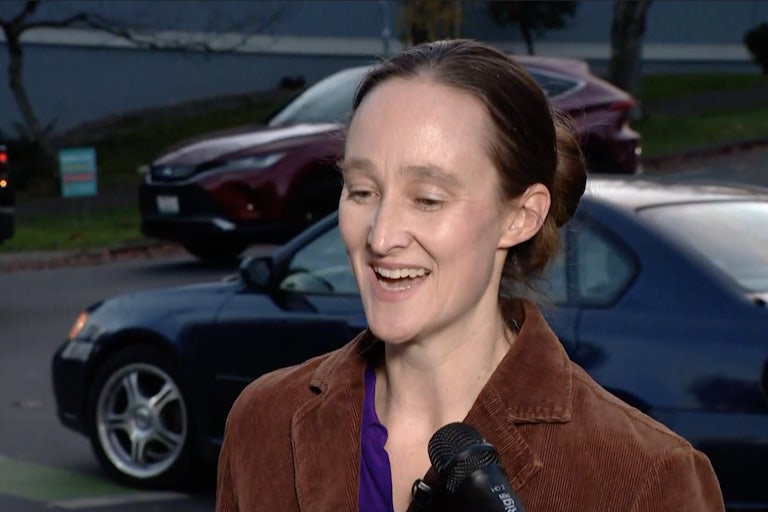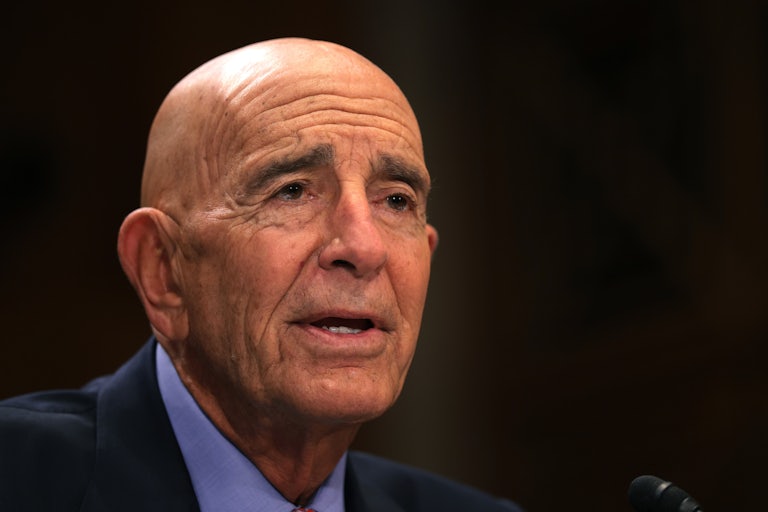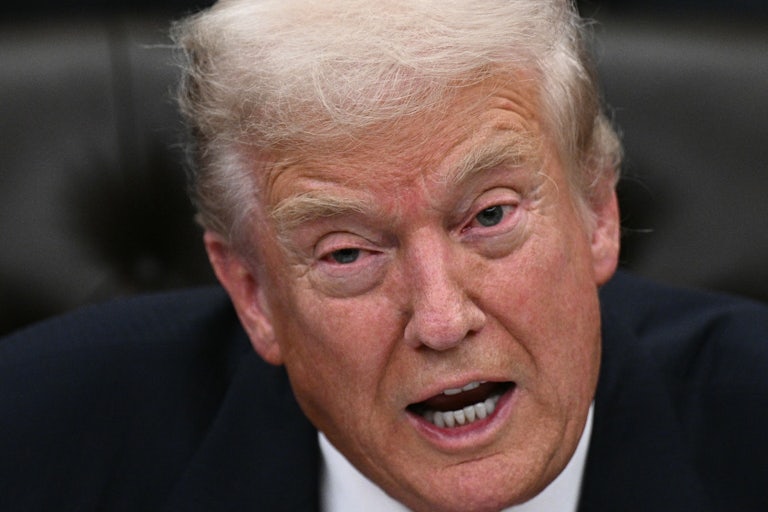More Women Than Ever Want to Leave the U.S.: Poll
Fewer women want to deal with the consequences of Donald Trump’s presidency.

A growing percentage of young women no longer see a future in the United States.
Roughly 40 percent of women between the ages of 15 and 44 said that they would permanently move abroad if they were able to, according to a 2025 Gallup Poll. That included 45 percent of single women, and 41 percent of married women.
It’s a stark difference from how young women felt when they were asked the same question a decade ago. In 2014, just 10 percent of that demographic said they wanted to leave the country, matching responses from all other queried gender and age groups.
That began to change when Donald Trump entered office, but it wasn’t always a partisan issue. Interest in leaving the country was relatively stable before 2017, rarely fluctuating regardless of the country’s leadership.
Young men, meanwhile, don’t currently feel the same level of pressure to exit the country. Just 19 percent of the same male-focused age group expressed the same desire to leave America.
The current differential in national satisfaction between young women and their male counterparts is the highest since Gallup began asking the question in 2007—but that’s not the only remarkable component to the data. “Few countries have shown gender gaps this wide in the desire to migrate,” Gallup noted.
American women’s desire to move abroad corresponds to their lagging faith in the country’s institutions: Young women have lost more faith in America and its government over the last decade than any other group.
That could be, in part, because of the Supreme Court’s 2022 decision in Dobbs v. Jackson Women’s Health Organization, which eliminated the constitutional right to an abortion. Young women have reported a “steep decline in their confidence in the judicial system” in the years since, according to Gallup, reporting that confidence levels fell from 55 percent in 2015 to just 32 percent in 2025. This is more than any other age group, Gallup noted.
Women’s overall happiness has dropped since 1972, “both relative to where they were forty years ago, and relative to men,” author Marcus Buckingham wrote for HuffPost last year. That’s regardless of whether those women have children; how many children they might have; whether they’re married, rich, educated, young, or old.
The potential dreamy future of a woman in the early 1970s stands in stark contrast to the grim horizon beyond 2025. The headlines of that decade abounded with significant legal achievements for the supposedly “weaker sex”: Roe v. Wade opened up a woman’s right to choose, Title IX sex discrimination laws were enacted to protect girls’ educational opportunities, Congress passed the Pregnancy Discrimination Act and legalized in vitro fertilization, and the Supreme Court extended contraceptive access to unmarried individuals (in Eisenstadt v. Baird).
Meanwhile, women were able to sincerely compete with men in the workplace, and for the first time, in 1974, women were able to apply for bank loans and credit cards in their own name. By all means, the future seemed bright for the young women of the country.
But that rapid pace of female advancement has since fallen to the wayside. Contemporary stressors for young people span from climate change to economic barriers such as the high cost of living, a national housing shortage, astronomical health care costs, and limited financial freedom, all reasons that have been cited as rationales for delaying the prospect of childbirth.
The country’s leadership has decided not to meaningfully focus on any of those problems in its flailing efforts to offset the country’s declining birth rates, however. Instead, the Trump administration has pitched a $5,000 “baby bonus” (that definitely doesn’t smell of socialism) to convince young couples to have more children. The president—who has dubbed himself the “king of IVF”—also promised in October to expand access to the procedure by “making it legal” for American companies to offer health coverage for IVF (something that was already legal and widely available). It is still unclear how Trump intends to enforce the program.
Pronatalist Republicans have also pushed for a slew of reforms that they claim would boost childbirth, but otherwise seem so inadequate at addressing the concerns of young people that those reforms would be insultingly meaningless. Some conservative family advocates have pressed the White House to deregulate childcare facilities and child car seats, which they argue would reduce the cost of living and result in more babies. Others have suggested that the Trump administration should bestow a “National Medal of Motherhood” on women with six or more children as a method to incentivize bigger families.
